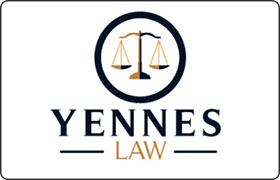 Brandon Eminent Domain Lawyers, Florida
Brandon Eminent Domain Lawyers, Florida
Sponsored Law Firm
-
 x
x

Click For More Info:
-
Law Office of Adham Yennes
27709 FL-56 Unit 103 Wesley Chapel, FL 33543» view mapBankruptcy & Debt Law Proudly Serving Hillsborough County
You need an attorney with bankruptcy knowledge who will vigorously protect your rights and interests.
800-873-3840
Lawyers
1-3 of 3 matches
Eminent Domain, Franchising, Business Organization, Banking & Finance




 Adham Yennes Wesley Chapel, FL
Adham Yennes Wesley Chapel, FL AboutLaw Office of Adham Yennes
AboutLaw Office of Adham Yennes Practice AreasExpertise
Practice AreasExpertise